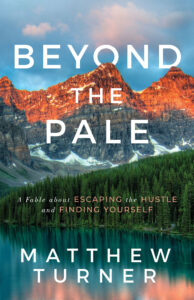The launch of Beyond Parallel is a mere month away and the epic journey I began in September 2006 is nearly at an end…kind of…sort of…not really. Let’s face it, I still have to sell it, release a paperback edition, and do talks and signings and all things nice.
In some ways the process will never end.
The first part is coming to and end, though, and I’m so fricking delighted. The reason for my ecstasy is SELF-EDITING, and yes, the capital letters are very much necessary!
Some people love editing, others don’t. I’m the latter, and I can’t imagine I’ll ever make a good editor. My attention span is too weak. I fall into the story too easily and forget all about grammar and structure and other important writing technicalities. Damn you technicalities!
Anyway, I’ve come rather far in the last two-years. I want to share how I did it, what I found to work, and how you too can become a self-editing superhero.
Self-Edit Like A Pro
I must have read Beyond Parallel 30 times in the last 12-months, and although I’d love to say it’s because it’s so damn good, it’s down to self-editing.
It’s been quite a journey, and this is what I’ve learned along the way.
1: Record Yourself
As soon as I started to record Beyond Parallel chapter-by-chapter, my self-editing skills took on new life. It’s amazing what hearing your words can do. Speaking aloud is also a fine self-editing tip, but it wasn’t until I recorded myself and listened to it again the next day that it began to come together.
I certainly recommend that you leave some distance (at least 24-hours) between recording and listening. A little gap in editing can work wonders and help you see things in a new light.
2: Use Your Kindle
The same applies for printing out your manuscript, but seen as we’re all environmentally friendly and cheap, using your Kindle/Kindle App is much more attractive.
The main point here is to get away from your computer. I was sceptical, I really was, but I can’t tell you how many things I spotted as soon as I was reading like a reader. Repetitive words, grammatical errors, and lazy text reached out to me. I couldn’t believe I had missed it the previous 22 times!
To be honest I wish I had done this earlier. If I used my Kindle earlier in the editing prices, my skill-set would have improved dramatically.
3: Use Other People
I don’t mean your editor, rather friends/family who have a good grasp on grammar and language. They don’t need to be professionals or anything, but a solid understanding is good.
The point here is to understand the opinions of people who aren’t invested in your project, which is something you and your editor CANNOT do. They will have questions, be confused by certain parts, and spot errors that previously had gone missed.
It’s amazing what a new set of eyes can do.
Defeat The Self-Editing Demons
Self-Editing nearly defeated me. I thought I’d never improve and get to the finish line. I did, though, and although I believe I can get MUCH better, I’m in a far greater place than I was six-months ago.
These techniques helped me massively. If you already do this, great, if not, I suggest you consider it. The sooner you start this process, the better.
I didn’t record myself until May
I didn’t read from my Kindle until September
I didn’t let someone else read it (other than my editor) until October
For future projects I’ll begin this process much earlier. Not only will it help me improve, but it will help the project gain life sooner. The quicker this happens, the better 🙂
Screw you self-editing, I defeated you… for now
Turndog Millionaire – @turndog_milion
Ps: Today I launch the first of 5 Beyond Parallel Readings. Please take a look and share throughout your network 🙂

